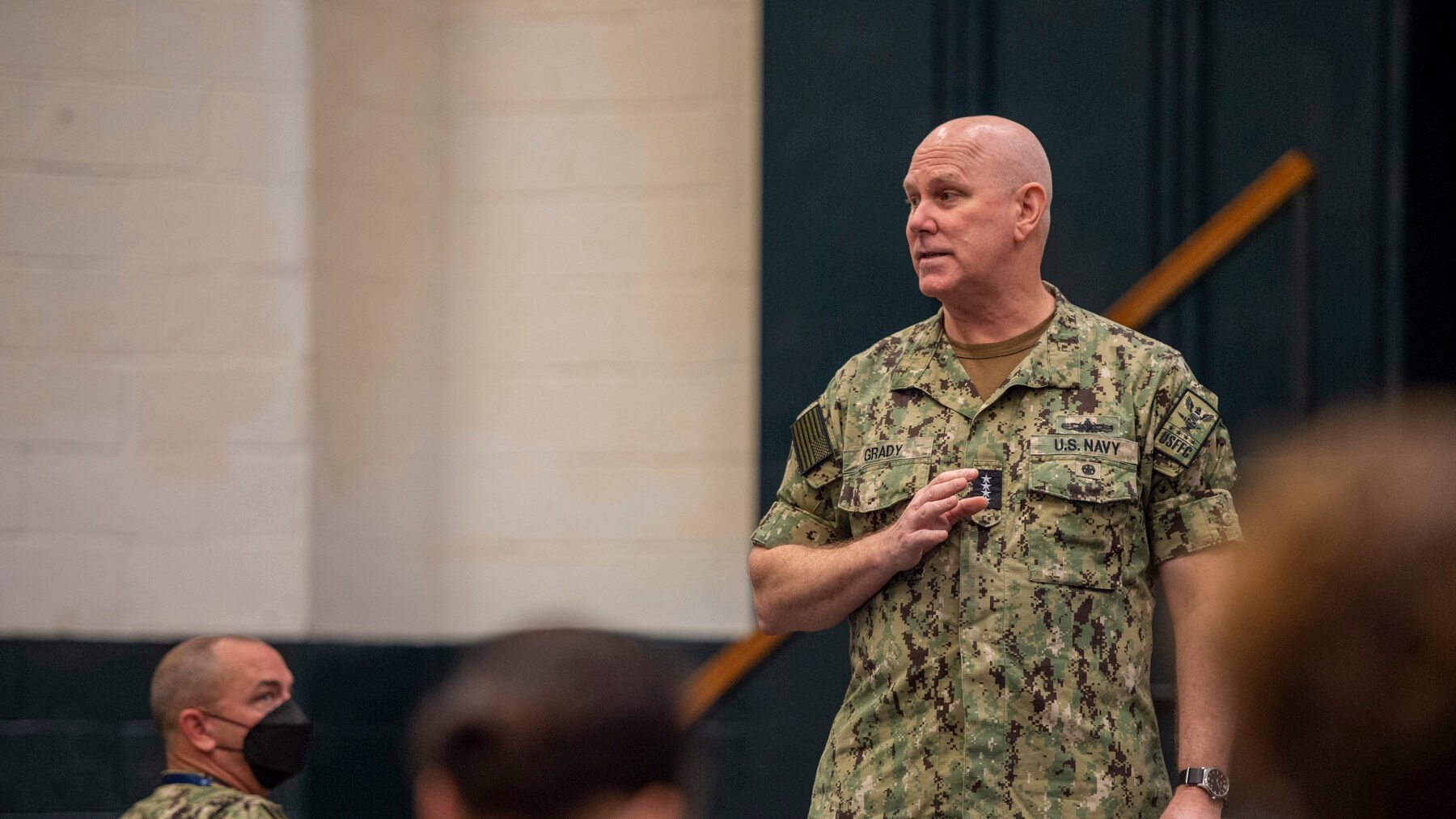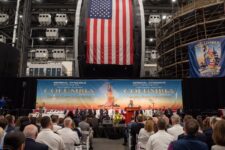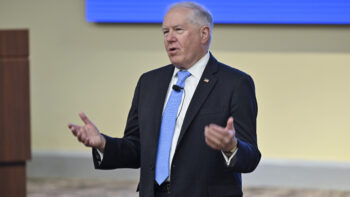
Adm. Christopher W. Grady, commander U.S. Fleet Forces Command, was nominated on Nov. 2, 2021, as vice chairman of the Joint Chiefs of Staff. (US Navy/Petty Officer 1st Class Theodore Green)
WASHINGTON: Add the Pentagon’s No. 2 military officer the list of four-stars who have now come out against the cancelation of a low-yield, sea-launched nuclear cruise missile program, as proposed by the Biden administration in the fiscal 2023 budget.
Vice Chairman of the Joint Chiefs of Staff Adm. Christopher Grady expressed support for continuing development of the Sea-Launched Cruise Missile-Nuclear program (SLCM-N) — a position that lines up with views previously expressed by Chairman of the Joint Chiefs of Staff Gen. Mark Milley and Adm. Charles Richard, who leads US Strategic Command.
“I am aligned with the chairman on this,” Grady said during a Senate Armed Services strategic forces subcommittee hearing on Wednesday. “It’s all about providing the president options against a broad series of contingencies. And in this respect, I am in favor of continuing to assess and evaluate the SLCM-N.”
Grady did not further elaborate on his support for the program, but whether the US should field low-yield nukes has been a perennial question for those charged with overseeing the nation’s nuclear enterprise.
Proponents believe that US-made low-yield nukes like SLCM are needed to deter Russia from using similar low-yield weapons which are already operational. Meanwhile, the arms control community worries it could increase the risk of entering a nuclear war, as there may be a lower threshold for using such weapons.
The Trump administration proposed SLCM-N as part of its 2018 nuclear posture review, following the Obama administration’s retirement of the nuclear-variant Tomahawk cruise missile in 2013. Essentially, SLCM-N would provide a nuclear-tipped cruise missile that could be used by Virginia-class attack submarines, which currently are not nuclear armed.
In March, a defense official confirmed the Biden administration had decided to cancel the SLCM-N in the FY23 budget after finalizing its nuclear posture review, which has not been released in an unclassified format.
However, in April, Milley and Richard broke with the Pentagon’s civilian leadership, telling lawmakers that they believed the SLCM program should be continued.
STRATCOM’s Richard, who was also present for the hearing on Wednesday, told senators that the latest Nuclear Posture Review has produced a “very good strategy.”
However, he doubled down on previous statements he has made in favor of continuing development of SLCM-N, saying that having a “non-ballistic, low-yield, non-treaty accountable system that is available without visible generation would be very valuable” and that the US needs to consider threats that have emerged since the review was finalized.
“And you believe that we have a deterrence and an assurance gap without SLCM, is that correct?” asked Sen. Deb Fischer, R-Neb.
“I do,” Richard said. “And what I would add is that one of the takeaways, I think, from Ukraine is: There are certain scenarios that were judged to be highly improbable that have now materialized in front of us in real life. And I think that requires us to go back and reassess some of the decisions we’ve made in the past.”
Sen. Elizabeth Warren, D-Mass., said that the Biden administration made the right decision in cancelling SLCM, and that the Pentagon needs to make “tough calls” to ensure conventional capabilities aren’t eroded by nuclear modernization.
“Even after eliminating this missile however, our nuclear modernization program is still incredibly expensive,” she said.






















